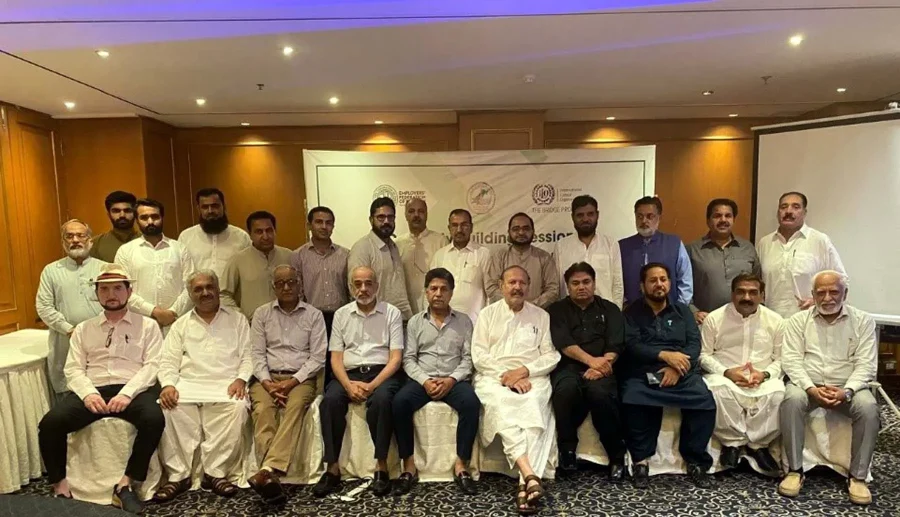The elimination of forced labor in the brick kiln industry is crucial for sustaining the sector and alleviating poverty, emphasized EFP Secretary General Syed Nazar Ali at a capacity-building workshop. The session, organized by the Employers Federation of Pakistan (EFP) with support from the International Labor Organization (ILO) under the BRIDGE Project, aimed to educate members of the Brick Kilns Owners Association Pakistan (BKOAP) in Lahore about the challenges and solutions related to forced and bonded labor. Syed Nazar Ali underscored that forced labor violates human rights and local laws, harming individuals and their families, while also hindering societal progress and perpetuating poverty.
He noted that this workshop was the seventh in a series aimed at enhancing the capacity of informal sector associations in Pakistan. “The goal is to deepen BKOAP’s understanding of eradicating forced labor and ensuring decent working conditions in the brick kiln sector, while promoting responsible business practices,” said Ali.
ShoaibNiazi, Chairman of BKOAP, thanked the EFP and ILO for their efforts, stating that the session would improve brick kiln owners’ understanding of forced labor, international standards, and relevant Pakistani laws. He urged the EFP and ILO to advocate for amendments to minimum wage and social security laws to better reflect the realities of the brick kiln sector.
Dr. Javaid Gill, the session consultant, provided a comprehensive presentation on forced and bonded labor, connecting it to ILO Conventions No. 29 and 105 and various international and local laws, including the Bonded Labour System (Abolition) Act, 1992, amended in 2018 in Punjab. He highlighted the roles of District and Provincial Vigilance Committees in law enforcement and rehabilitation, stressing the importance of policies, training, and cross-sector cooperation to combat forced labor.
During an open discussion, participants addressed issues within the brick kiln sector, clarifying that forced or bonded labor is not practiced, although challenges with social security registration exist. They also suggested regional adjustments to minimum wage laws and highlighted the need for labor laws to accommodate family-based work dynamics in the sector.









